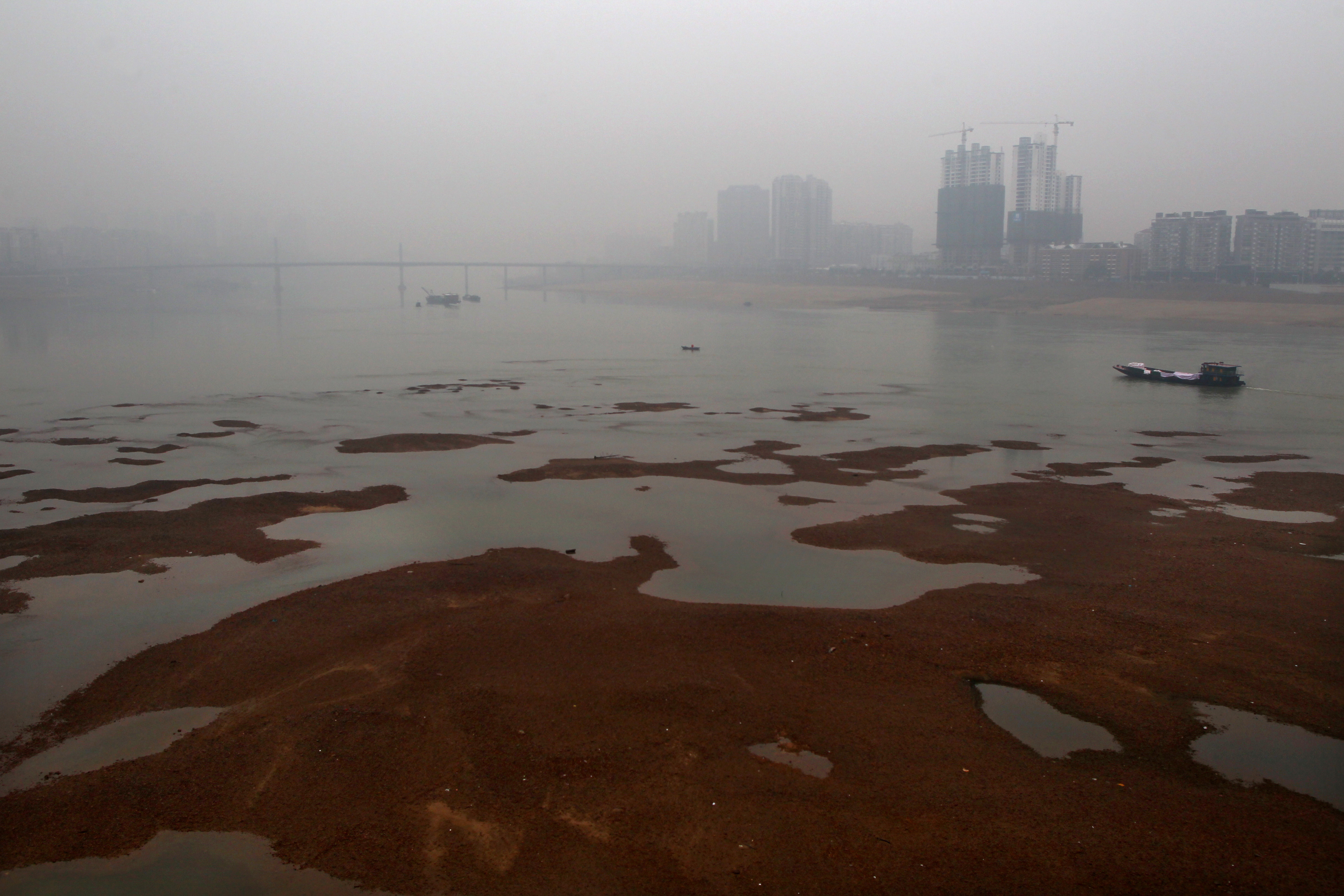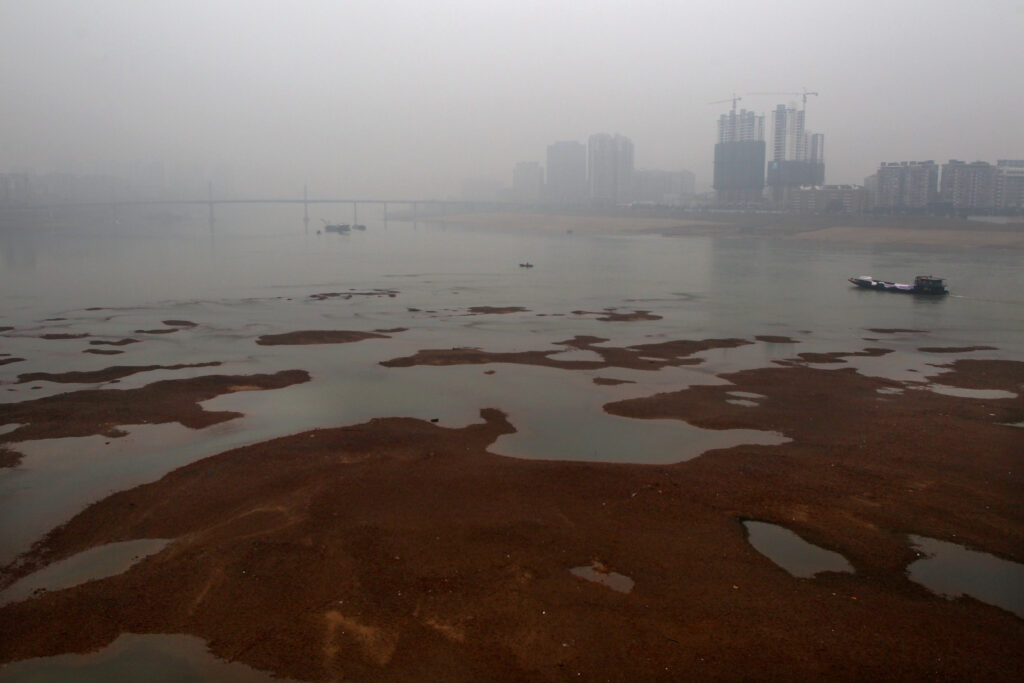Yuanni Wang, Graduate Student in Sociology, Hohai University.
To stand opposite the government, but not against it: this is the basic principle of Green Xiaoxiang, an environmental organization actively promoting pollution monitoring, environmental advocacy and environmental policy research. By sticking to this principle, Green Xiaoxiang has tried to adopt cooperative measures, and have played an effective role in environmental governance in China, a country with limited space for public participation.
A polluted river and Green Xiaoxiang
Xiang River is an important water source for domestic water and industrial water in the Xiang River area, and it’s the mother river of Hunan province. As early as 2008, the GDP in the Xiang River Basin accounted for 75.2% of Hunan Province, with the added value from industry accounting for 76.4% of the whole province.[1]While contributing to the economic development of Hunan, Xiang River is also a place of huge environmental pollution and degradation. As early as the 1970s, heavy metal contamination was already being detected in the drinking water. By the 1990s, Xiang River’s overall water quality had deteriorated even further with heavy metal pollution. From 2006, the river had become responsible for five major pollution areas: Xiangtan Zhubu Port, Loudi Tin Mine, Zhuzhou Qingshuitang, Hengyang Shuikoushan and Chenzhou Sanshiliuwan.

The government of Hunan Province have taken a series of measures to control pollution in the Xiang River, after the discovery of the heavy metal pollution. For example, in 1979 the Hunan provincial government publicized the ‘Provisional Regulations on The Protection of The Xiang River System’. This was followed much later in 2000 with the launch of a campaign to reduce industrial sewage output, named ‘zero action’. In 2008, Hunan provincial government even put forward the goal of “building the Oriental Rhine”. Though these regional actions, the water quality of the Xiang River has been gradually improved, but the pollution remains serious across the Xiang River at huge geographic scale.
When faced with a choice between economic development and environmental protection options, local governments are often more inclined to think economically.
When faced with a choice between economic development and environmental protection options, local governments are often more inclined to think economically. This has made a sustainable scheme for Xiang River governance very difficult to implement. In other words, if the government alone is left in charge of Xiang River governance, it’s hard to achieve an environmental outcome that satisfies the public.
In face of the increasingly prominent environmental problems in Xiang River, the environmental NGO Green Xiaoxiang launched the participatory project: “Watch the Mother River”. This Xiang River Basin folk observation and action network project aims to assist government departments to better solve the pollution of Xiang River.
Mobilizing the public to protect the ‘Mother River’
Through acquaintances, new media, and traditional media, Green Xiaoxiang managed to find community members interested in environmental protection, and mobilized them to join the ranks of the ‘Mother River’ project. After agreeing to join the river action network, Green Xiaoxiang staff trained them, on how to find a sewage outfalls, water quality monitoring, pollution reporting, and how to use new media to carry out pollution exposure, and so on.
With these new skills, these volunteers are able to carry out environmental monitoring and spot cases of sewage entering the river. Green Xiaoxiang have also trained the volunteers to take water quality measurements, using simple water quality inspection packets. They can also monitor this pollution photographically, using their mobile phones to upload instances of pollution to a micro-blog. There is also a hotline to report pollution. By using these methods, the River Watchers can arouse the attention of the relevant government officials, and promote a solution to the problem.
the River Watchers can arouse the attention of the relevant government officials, and promote a solution to the problem.
Cooperation strategy for policy change
To solve local environmental problems, Green Xiaoxiang use the media to gather public opinion and deliver the public demands to the higher level government. Under this pressure, the local environmental protection bureau invited environmental organization to convene a forum to establish contacts and negotiation mechanism to prevent the occurrence of social instability and government credibility being questioned by the public.
“Negotiation mechanism” refers to a series of procedures and actions set up and followed by the volunteers and the local environmental protection bureau. First, the local environmental protection bureau sets up internal reporting channels for volunteers. Volunteers and local environmental protection bureau staff keep contact with each other, and establish a WeChat communications group. Second, when volunteers spot environmental problems, they inform the environmental protection bureau who must deal with it in the shortest time. If the environmental protection bureau is unable to do so, they have to give an explanation. On the other hand, volunteers promise that they will assist local environmental protection bureau to find a solution for local environmental problems, rather than create unnecessary trouble for the government. Thus, when volunteers discover environmental problems, they will first of all inform the government and let the government be at the forefront to solve the problems. In other words, when volunteers encounter an environmental problem, they should report it directly to the government agencies, instead of use the Internet to promote the solution of the problem in the absence of communication with government agencies.
Volunteers often walk on contaminated areas and are familiar with the pollution situation, and they hope their actions can change the environment around them. However they only have the right to monitor and inform the government of the problem, and have to rely on the power of the government to solve the problem. Therefore, facing local government inactions, they have to compromise and put their own goals and government’s objectives together to achieve a win-win situation.
Green Xiaoxiang has been playing an effective role in environmental governance. Firstly, they have expanded their influence by mobilizing the public to join the ranks of local environmental protection, using the platform of new media to connect volunteers in different areas, and establishing a non-governmental environmental protection volunteer action network. Secondly, they have strengthened their legitimacy, through the support of official authority via establishing contacts with government agencies. Thirdly, they have obtained the trust and support of the local government to reduce the pressure of volunteers in fighting environmental problems. By obeying the principle of “standing opposite the government, but not against it”, Green Xiaoxing has established a positive interactive relationship between volunteers and the government.
Green Xiaoxing has established a positive interactive relationship between volunteers and the government.
[1] The Government of Hunan Province: “comprehensive management plan of ecological environment in Xiangjiang River Basin of Hunan province”, 2011.
